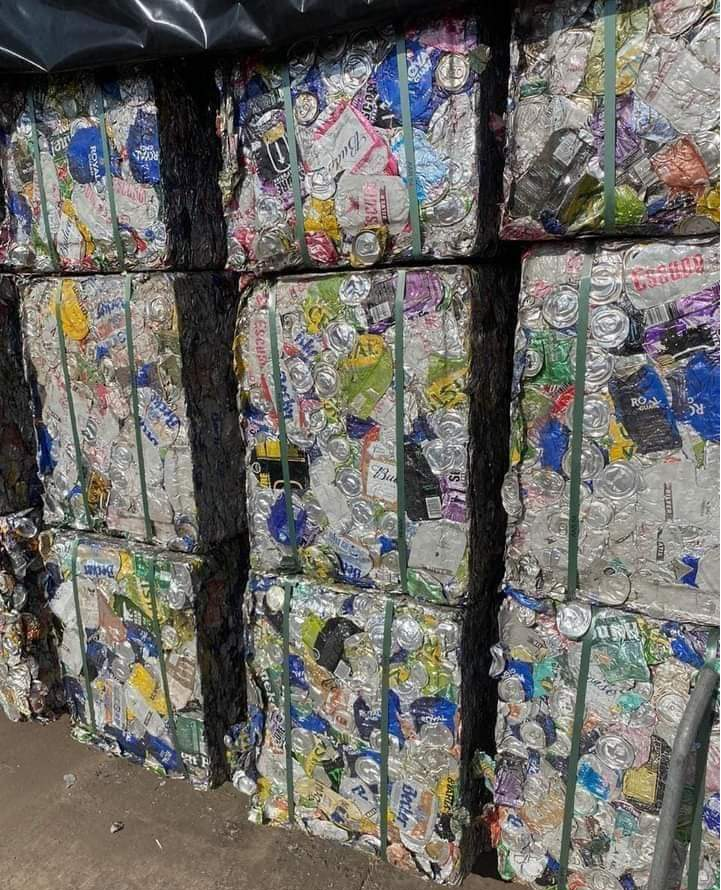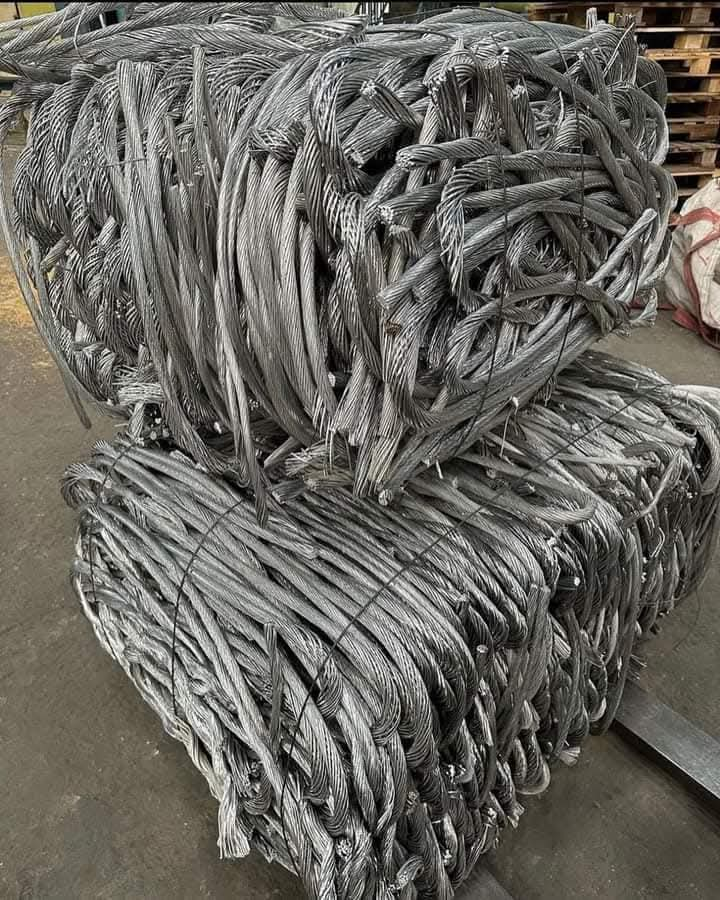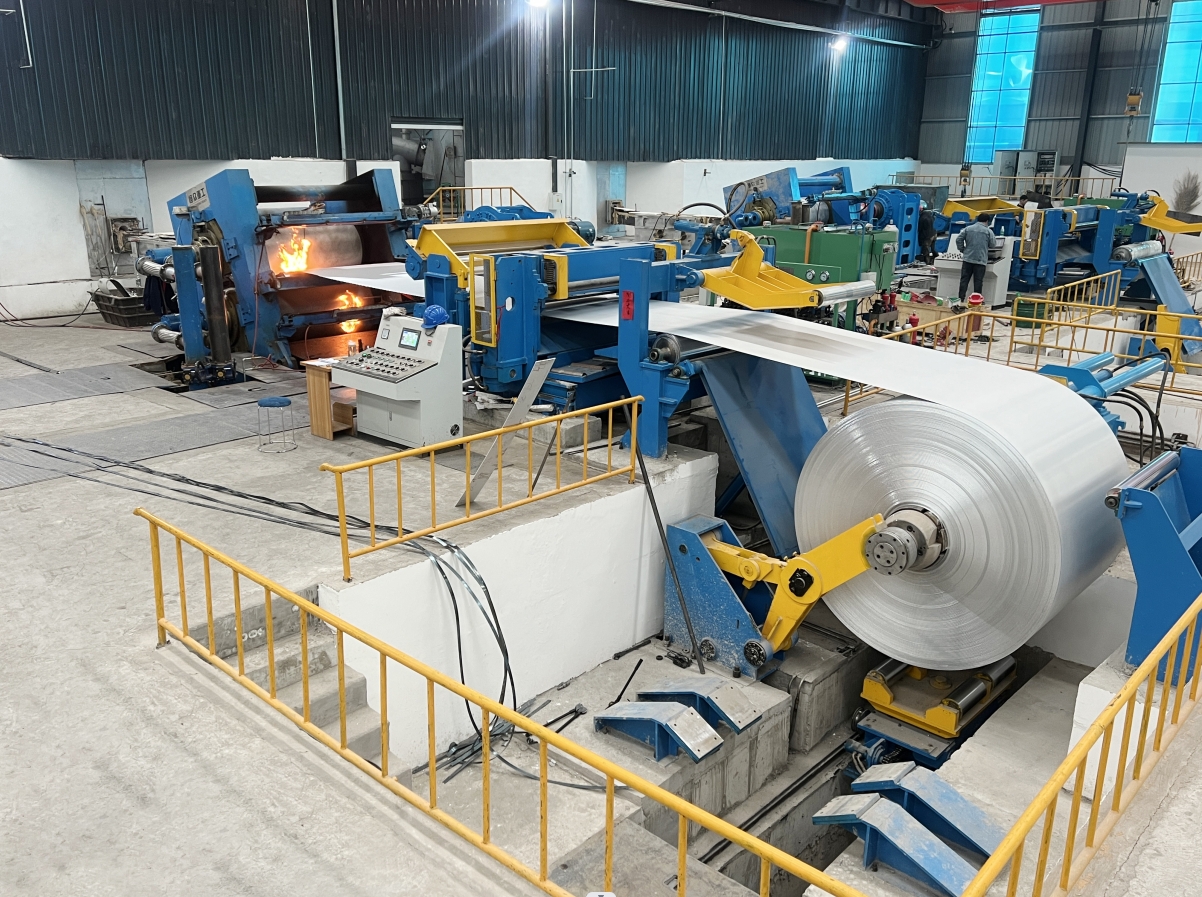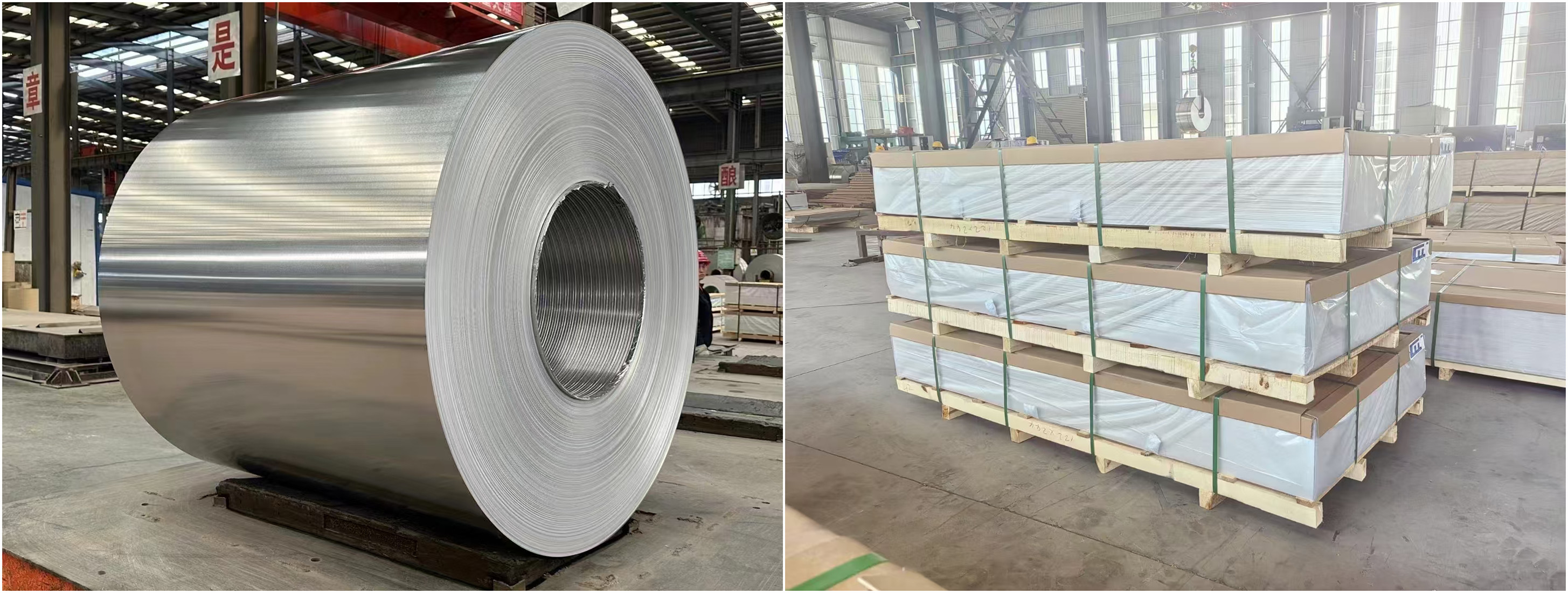Recycled Aluminum: A Green Transformation from Scrap to Aluminum Sheet and Strip
Release time:
Nov 27,2024
I. Advantages of Recycling Aluminum into Aluminum Sheet and Strip
Recycling aluminum to produce sheet and strip has remarkable advantages. Recycled aluminum is energy-efficient and environmentally friendly, aligning with the concept of sustainable development. As global environmental awareness increases, the market demand for recycled aluminum is growing, with wide applications in fields like new energy vehicles and aerospace. There remains untapped potential in the market for high-performance recycled aluminum products. By leveraging advanced technologies and producing high-quality products, businesses can gain a competitive edge. As an environmentally friendly material, it contributes to the green transformation of industries, presenting significant profitability and investment returns.
II. Processes for Recycling Aluminum into Aluminum Sheet and Strip


(1) Sorting and Packing
The first and crucial step in recycling aluminum scrap is precise sorting. Professional technicians utilize advanced spectrometers to conduct thorough initial detection of aluminum and aluminum alloy scrap. These spectrometers emit and analyze specific wavelengths of light to accurately determine the elemental composition of aluminum scrap, thereby identifying its alloy type. Based on the detection results, scrap with the same alloy composition is uniformly sorted and organized. Then, specialized packing equipment compresses the sorted scrap into compact bales, which are neatly stacked on pallets and stored for subsequent processing. This stage lays a solid foundation for efficient further processing.
(2) Medium-Frequency Induction Melting of Aluminum
Once ready, the packed aluminum scrap is carefully fed into a medium-frequency induction furnace. Temperature control is a critical factor in this stage, requiring precise maintenance of the furnace temperature between 730°C and 760°C, with a melting duration of 50–60 minutes. The medium-frequency induction furnace operates on the principle of alternating magnetic fields, which generate induced currents within the aluminum scrap. Due to aluminum's electrical resistance, the current produces heat as it flows, rapidly melting the aluminum scrap.
Compared to traditional methods, this melting process offers several significant advantages. It dramatically reduces the oxidation and burning loss of aluminum during melting, minimizing raw material waste and improving material utilization rates. The process also produces cleaner molten aluminum with fewer impurities, ensuring high-quality aluminum for subsequent production stages. Moreover, medium-frequency induction melting is highly efficient, capable of melting large volumes of scrap in a short time while causing minimal environmental pollution, meeting modern requirements for green production.
(3) Alloying and Casting
The purified molten aluminum obtained from the melting process is then carefully transferred into a refining furnace for the critical alloying and casting stage. In the refining furnace, technicians add various alloying elements based on the specific performance requirements of the aluminum sheet and strip being produced. Precise alloying operations ensure that the final product meets desired specifications.
Advanced degassing and slag removal technologies are employed to eliminate gas impurities and solid inclusions from the molten aluminum, ensuring its purity and uniformity. Once all parameters of the molten aluminum meet the ideal standards, it is poured into meticulously designed molds for casting, forming slab ingots used for producing aluminum sheet and strip.
These slab ingots undergo subsequent processing steps such as hot rolling, cold rolling, and annealing to be crafted into high-quality aluminum sheet and strip products with diverse specifications and performance characteristics. These products are widely applied in industries such as construction, electronics, and transportation, symbolizing a green transformation from scrap aluminum to high-value aluminum sheet and strip, bridging the gap between resource recycling and industrial production.
III. Market Prospects for Recycling Aluminum into Aluminum Sheet and Strip
Although China is a major country in aluminum rolling processing, its enterprises generally suffer from low average production capacity, weak economies of scale, and low industry concentration. As consumers' living standards improve, the demand for high-end aluminum sheet and strip products continues to grow, creating opportunities for leading enterprises to gain a competitive edge.
In the future, technological innovation will drive the advancement of the aluminum sheet and strip industry. The emphasis on environmental protection will promote green production, and structural adjustments within the industry will highlight the strengths of large enterprises. At the same time, export potential is yet to be fully tapped, with Chinese aluminum sheet and strip products expected to capture a larger share of the international market.
IV. Aluminum Recycling Project Case Study

One of our key clients utilizes up to 95% recycled aluminum as their primary raw material, including recovered wires, aluminum scrap, and coated aluminum. With the professional design and support of our technical team, their Phase I project successfully deployed three casting and rolling machines: one 1750 model and two 1650 models. These machines are primarily used for producing high-quality aluminum coils and curtain wall panels, catering to the needs of the construction and other industries.
The successful implementation of Phase I not only enhanced the client’s production efficiency but also significantly reduced raw material costs, achieving a win-win situation of economic and environmental benefits. Currently, the client is actively advancing the construction of their Phase II project, which is expected to further expand production capacity, optimize their product portfolio, and meet growing market demands. We remain committed to providing comprehensive technical support and equipment services to help our client achieve greater value in the recycled aluminum sector.


